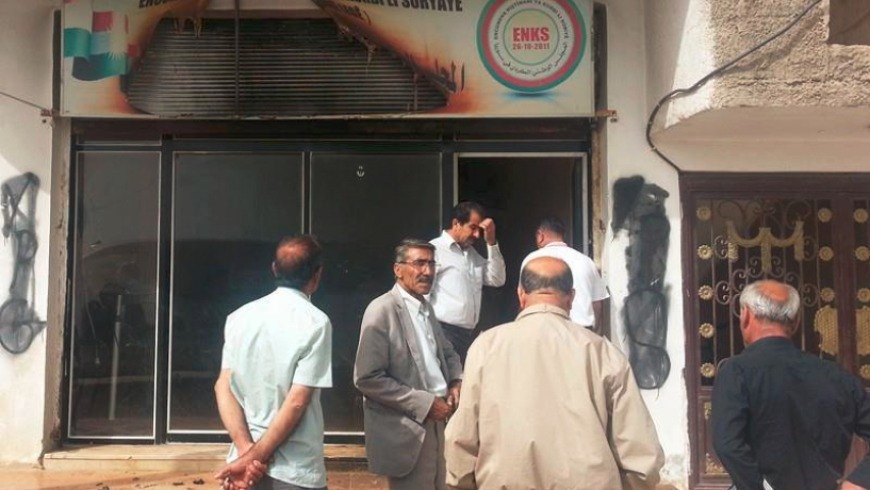The US State Department has issued a stern warning to the Syrian Democratic Forces (SDF) regarding the potential closure of the offices belonging to the Kurdish National Council (ENKS) and the prohibition of its activities in northeastern Syria.
According to a source cited by Syria TV, a representative from the US State Department reached out to SDF commander Mazloum Abdi from Washington, emphasizing the repercussions of such actions. The warning highlighted the potential negative impact on the SDF’s standing and regional stability, while also undermining the ongoing dialogue process among various stakeholders in northeastern Syria.
The US envoy underscored the importance of maintaining an open dialogue and fostering inclusivity among all parties involved in the region to ensure stability and progress.
SDF Conflict Undermines US Influence
A source close to the SDF disclosed to Syria TV a rift between a faction affiliated with the Kurdistan Workers’ Party (PKK) and its ideologies, and another faction led by Mazloum Abdi, which aligns more closely with Washington and espouses a “national discourse.”
The source highlighted that since the beginning of 2021, the PKK faction has been diminishing the authority and influence of Mazloum Abdi and his associates within the SDF, leading to repeated awkward situations for them in their dealings with Washington. The US has expressed its displeasure and apprehension regarding ongoing violations within areas under SDF control, as well as the escalating influence of the PKK.
Furthermore, the source underscored Washington’s unease over the strengthening ties between Iran and the PKK, fearing that this alliance may lead to the advancement of Iranian interests conflicting with the SDF’s orientation and the objectives of the international coalition forces in northeastern Syria.
The source argued that these dynamics explain the failure of the SDF commander and the Asayish forces to curb violations such as the recruitment of children and minors, as well as the detention of journalists and political activists. Additionally, incidents like the burning of the Kurdish National Council headquarters and the constraints imposed on its activities further illustrate this failure.
Following the arson attacks on two Kurdish National Council headquarters, the Internal Security Forces, known as the Asayish, issued a statement earlier this month announcing the commencement of thorough investigations to apprehend the perpetrators and bring them to justice. This action was reportedly prompted by US pressure, as indicated by a confidential source to Syria TV. Despite these efforts, the SDF was unable to prevent subsequent attacks on two additional headquarters by the Revolutionary Youth organization or apprehend those responsible.
In response to these incidents, the US embassy in Syria tweeted from its official account expressing concern over the ongoing attacks on Kurdish National Council offices in northern Syria and urging an immediate cessation of such violence.
In light of the continued assaults on Kurdish National Council facilities, the Autonomous Administration, operating within SDF-controlled areas in northeastern Syria, has threatened to pursue legal action against “unauthorized” parties in their jurisdiction, particularly in the aftermath of the second arson attack perpetrated by the Revolutionary Youth in early March.
This article was translated and edited by The Syrian Observer. The Syrian Observer has not verified the content of this story. Responsibility for the information and views set out in this article lies entirely with the author.


